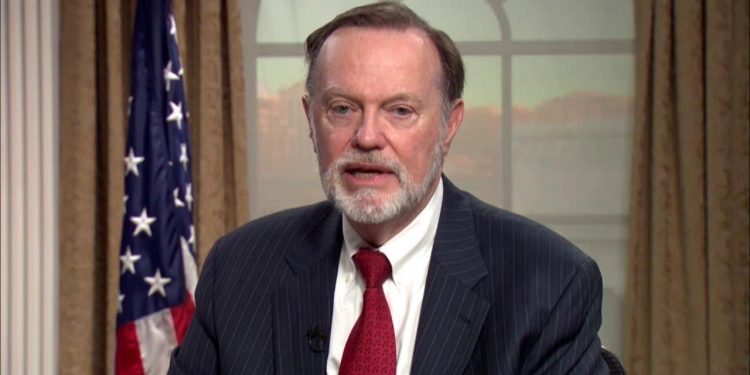Former Assistant Secretary of State for African Affairs of the United States, Tibor Peter Nagy, has expressed scepticism regarding international support for Cameroon’s Ambazonia separatists, asserting that “the world doesn’t care.”
Nagy made these remarks during an interview with ABC TV, an online platform associated with separatist leader Chris Anu. The discussion centred on the possibility of a referendum for Cameroon’s English-speaking regions.
According to Nagy, the international community is unlikely to compel the Cameroonian government into dialogue for the secession of the Anglophone regions, contrary to the aspirations of the Ambazonians. He emphasised that expecting such intervention would only lead to prolonged discussions without resolution, stating, “We will be having the same discussion in 20 years.”
“The Republic of Cameroon will not be pressured by any nation to negotiate independence for Southern Cameroons,” Nagy asserted, underscoring a prevailing indifference on the global stage towards the situation.
In urging Ambazonia leaders to shift their focus towards future prospects rather than historical grievances, Nagy highlighted the futility of dwelling on past injustices. He underscored the necessity for a pragmatic approach, stating, “If Southern Cameroonian leadership, their elites, and the people want to resolve their problem and achieve their full dignity, then they really have to focus on the future.”
Nagy’s commentary reflects a broader trend of international disengagement with the ongoing Anglophone crisis in Cameroon. Despite consistent criticism of the Cameroonian government’s handling of the conflict and advocacy for dialogue with separatists, tangible progress remains elusive.
Addressing calls from factions such as the Southern Cameroons People’s Organisation (SCAPO) for a referendum, Nagy cautioned against viewing it as a panacea. While acknowledging its potential as a mechanism for resolution, he emphasised the need for a multifaceted approach to address the complex conflict effectively.
Critics, including American-based Southern Cameroonian lawyer Tim Mbeseha, have raised objections to the referendum proposal. Mbeseha, who participated in the All Anglophones Conference 1 in April 1993, argues that it lacks clarity and exhibits bias towards Ambazonia proponents. He stated the importance of inclusive dialogue between Ambazonia leaders and the Cameroonian government to delineate the issues before proposing solutions.
In light of these perspectives, Barrister Mbeseha advises Ambazonia leaders to prepare alternative strategies in case their proposals are rejected during dialogue with the Cameroon government.



